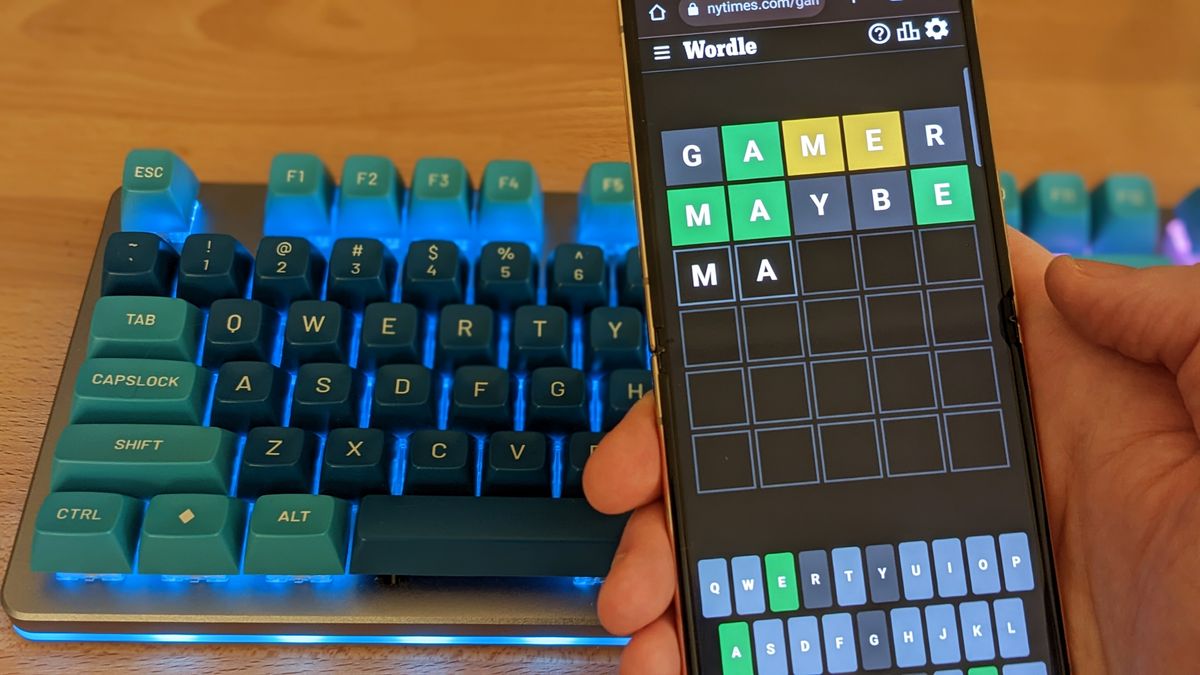Healers often get a raw deal in hero shooter games. Classes capable of keeping players alive are critical, and can make the difference between a team that wins and a team that loses. Despite risking life and limb for teammates who may not deserve it, healers say they are rarely appreciated. This axiom was true in the days of the original Overwatch and its controversial resurrection mechanics, and held steady for the sequel even as Blizzard spent years tuning said gameplay. Now that Marvel Rivals is in the spotlight, healers are having a bad case of déjà vu. This time, though, healers find themselves in a literal popularity contest.
At the end of a Marvel Rivals match, after a winner is declared, the game crowns a most valuable player (MVP) and a runner-up on the losing team (SVP). During this screen, players can watch match highlights for each individual contributor and take the opportunity to speak to their group one last time. Here, participants can send each other thumbs-up votes, presumably as a measure to help build camaraderie between fans. You can send as many votes as you’d like, including to yourself, for some reason. There’s arguably some incentive to send people votes, as some seasonal challenges award cosmetics such as sprays.
But based on conversations with nearly a dozen Strategists — Marvel Rivals’ official term for characters whose mechanics are built around aiding others — more often than not, healers are the class type most likely to get shafted. Characters in this category include the recently released Invisible Woman and the Jeff the Land Shark. Strategists like Rocket Raccoon and Mantis both have some of the highest win rates around. The importance of a Strategist seems inarguable, yet many of them feel as if they do not get their flowers.
“I think healers in this game don’t get a lot of credit,” said Hayes Madsen, a Cloak & Dagger main who has logged over 100 hours in NetEase’s shooter. Madsen estimates that he’s spent 60% of that time playing Strategist, and throughout, he said, he’ll only get an upvote “if [he’s MVP or SVP] on [his] team, or here and there randomly.”
Most of the Strategist players I spoke to agree that the end-of-game voting as a whole can be hit or miss. It’s likely that dejected players on a losing team will mash their way out of the screen that’s reminding them of their failure. Marvel Rivals’ virtually instant queue times make it easy to move on to the next ordeal as well.
Like anything else, there are exceptions for when Strategists do and do not get their due. If you’re playing with actual friends, for example, then those pals are more likely to throw you a bone. The mode you’re queuing for sometimes changes this dynamic as well.
“People are way better about voting in ranked and will typically recognize my efforts even if we didn’t do so hot,” said Otachis, a Jeff main who sometimes plays with her vote-ready boyfriend.
Hushbuppy, a Mantis main who maintains that healers “do not get particular recognition even when they perform very well,” has witnessed differences between Quick Play and Ranked as well. Though Strategists may get votes in the former mode, potential nods sometimes feel like they are out of obligation.
“In quickplay people seem to either not vote or just vote the whole team so there’s usually not singling out,” Hushbuppy told Polygon. “But in ranked people seem more selective, and there I find that [damage-per-second] roles usually get the votes (if the team won) while healers often don’t.”
The segregation between damage-dealing characters and classes who play support roles was widely noted by interviewed players. On the whole, Rivals players seem more likely to upvote people with high kill/death ratios than other types of teammates. While the game itself recognizes Strategists who heal in great numbers with a badge, overall, support types are less likely to be deemed an MVP or SVP. Some classes feel the stinginess more than others, though.
“I find Mantis easier to get MVPs with due to her having pretty good damage on top of her ult sometimes just being enough to flip the balance to secure objectives or maintain on Overtime hold while waiting for my team,” said Synda, a gold-ranked player whose above-average gameplay has allowed them to get upvotes in Quick Play and Ranked alike.
Perceptions around “optimal” team compositions influence how Strategists fare during voting as well, based on conversations with numerous players. Rivals players can earn seasonal bonuses, like additional damage or health, by playing specific characters together. These dark horse picks, which often defy conventional knowledge, tend to be overlooked during the postgame, players said.
“End of game voting has felt like if you don’t pick meta characters [like Mantis or Luna Snow], you’re not very recognized unless you manage to pump out insane amounts of healing and receive the ‘Most Heals in Game’ icon on the end game scoreboard,” said Loki main Yabba.
As some tell it, while they might strike out during voting, they’ll occasionally find other signs that suggest others aren’t taking them for granted. Luca, a Jeff player whose multi-kill abilities sometimes net endgame votes, said that players often express appreciation during the match itself.
“I’ve had some people thanking me in chat when my healing is clearly saving them, and others where people just ignore me,” Luca said.
When Strategists do win votes, it tends to come from players who directly benefited from the heals. Hushbuppy, for instance, said that players with intensely mobile mains like Spider-Man tend to be more grateful than others.
“I suspect it’s just they recognize the difficulty in getting to them at all with how fast and how wildly they move,” Hushbuppy said. “Iron Man and Storm players also seem more appreciative, and I’d guess it’s for similar reasons as flying characters.”
But for all the niceties, there seems to be an equal number of ingrates who sour the experience. Ryan, an Adam Warlock enthusiast, called the role a “thankless job” where “no matter how well you’re doing you still have people spamming ‘need healing.’”
Much of this grumbling will sound familiar to anyone who has played team-based shooters before. But beyond the voting — which isn’t a mechanic in Overwatch 2 — playing as a support class in Marvel Rivals does hold some distinctions from its predecessors. Multiple players told Polygon that playing support feels slightly less like a chore than it does in other games in the genre.
“I found myself having quite a lot of fun with Cloak & Dagger and now play them for genuine enjoyment rather than necessity,” says Dennis. While some Strategists, particularly those in Quick Play, might be picked less frequently, surprisingly, healers aren’t necessarily the rarest class in the game. Instead, players seem to shy away most from the tank-heavy Vanguard class. Multiple players I spoke to claim their matches tend to have at least one Strategist, maligned as they might be. Then again, there aren’t that many Vanguard characters to begin with, which might explain their scarcity.
The stigmata surrounding character types are different in Rivals as well. Where Overwatch players had to endure gender-specific harassment tied to characters like Mercy, Rivals came out of the gate with more support characters as well as gender parity for the class. The characters who can resurrect, like Adam Warlock and Rocket Raccoon, are also male. Typically, the initial support characters in team-based games tend to be women.
“I remember the term ‘Mercy main’ being thrown around as derogatory a lot and people assuming that all women played mercy because they lacked skill in other roles,” said Otachis. “Thankfully I haven’t seen much of that in the Rivals community.”
While the downer vibes aren’t as rancid as they were in games like Overwatch, and despite the occasional upvotes, in general, Rivals Strategists tend to feel the brunt of the blame when things go south. “It’s always been one of those roles where if you’re doing it well, no one notices,” says Ryan. “But if you drop the ball, everyone points at you first.”
Strategists do concede that anyone who plays poorly will likely face harassment during or after matches. Strategists are scapegoats, however, because their role is directly relational to other players.
“With healers, it’s easy to think that you died because your healers are bad, versus your positioning wasn’t good or they were just busy saving someone else,” said Loki main Jason Michaels. “I also think healers get the spotlight because if they’re ‘not doing well,’ you’re getting killed and not getting to play your game.”
With all the pressure and potential negativity, why do Strategists bother? Players like Ryan will readily admit that playing a Strategist opens an inherently “masochistic” dynamic. But if you want to win, then someone has to brave it.
“I play healer, as I always have, because I believe deep down that heals will make or break a match,” Ryan stated.

 19 hours ago
6
19 hours ago
6











 English (US) ·
English (US) ·